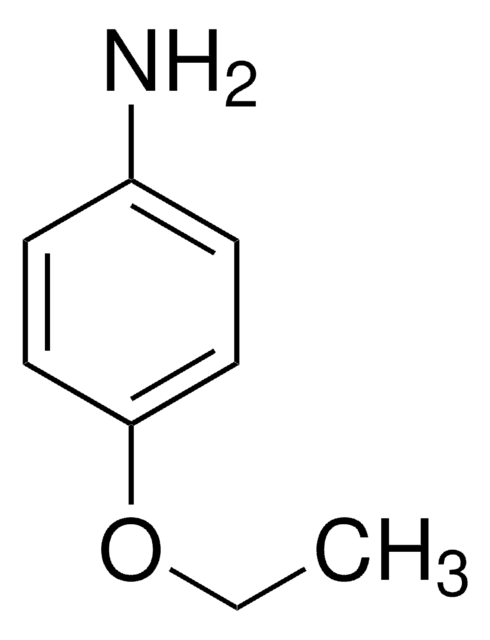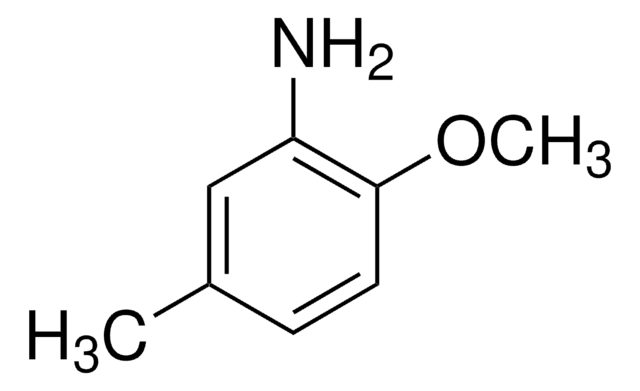112984
2,5-Dimethoxyaniline
98%
Synonym(s):
Aminohydroquinone dimethyl ether
About This Item
Recommended Products
Assay
98%
mp
78-80 °C (lit.)
SMILES string
COc1ccc(OC)c(N)c1
InChI
1S/C8H11NO2/c1-10-6-3-4-8(11-2)7(9)5-6/h3-5H,9H2,1-2H3
InChI key
NAZDVUBIEPVUKE-UHFFFAOYSA-N
Looking for similar products? Visit Product Comparison Guide
Application
Signal Word
Warning
Hazard Statements
Precautionary Statements
Hazard Classifications
Acute Tox. 4 Oral
Storage Class Code
6.1C - Combustible acute toxic Cat.3 / toxic compounds or compounds which causing chronic effects
WGK
WGK 1
Flash Point(F)
266.0 °F - closed cup
Flash Point(C)
130 °C - closed cup
Personal Protective Equipment
Certificates of Analysis (COA)
Search for Certificates of Analysis (COA) by entering the products Lot/Batch Number. Lot and Batch Numbers can be found on a product’s label following the words ‘Lot’ or ‘Batch’.
Already Own This Product?
Find documentation for the products that you have recently purchased in the Document Library.
Customers Also Viewed
Our team of scientists has experience in all areas of research including Life Science, Material Science, Chemical Synthesis, Chromatography, Analytical and many others.
Contact Technical Service












